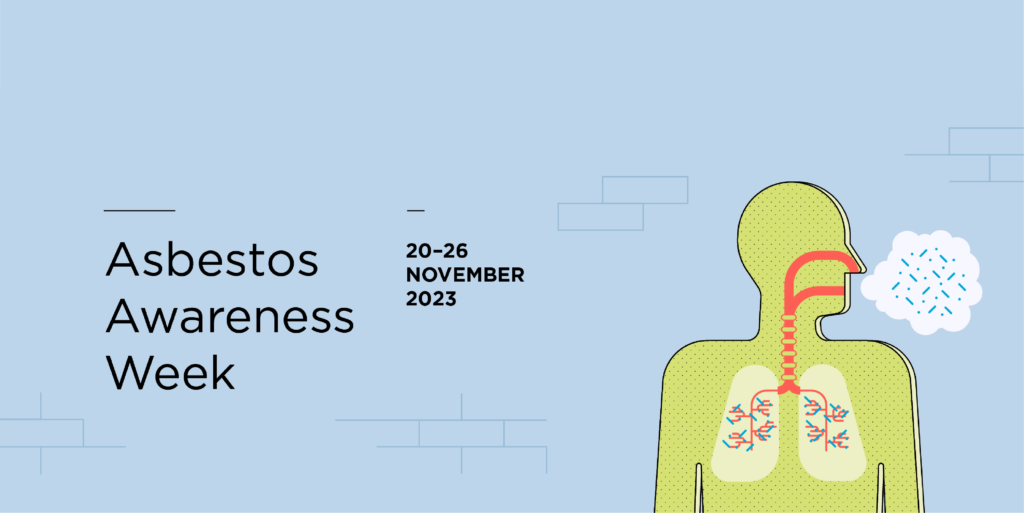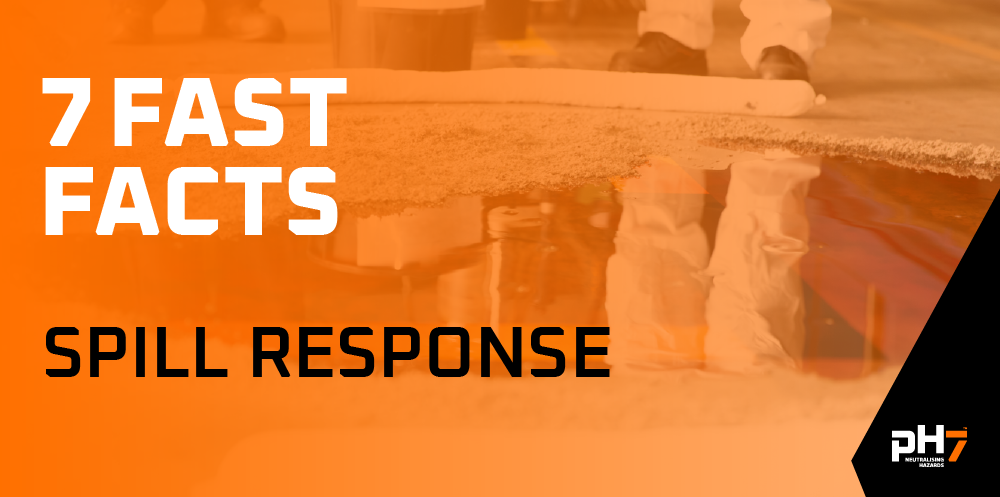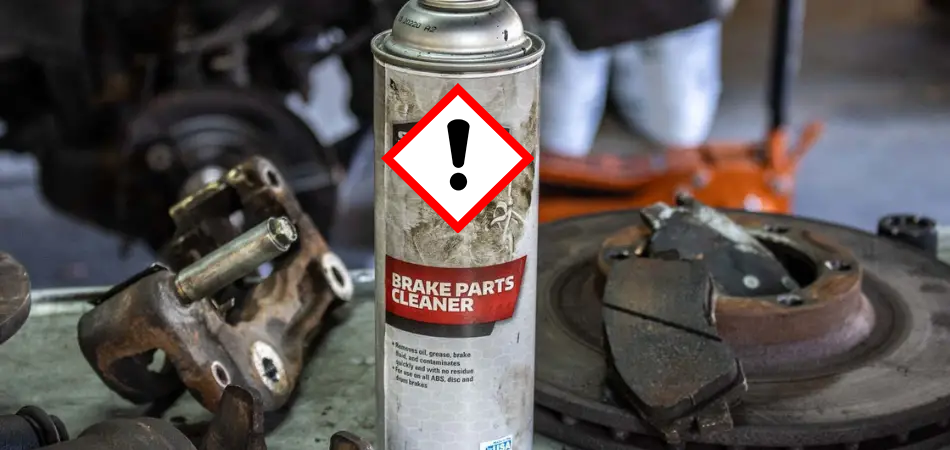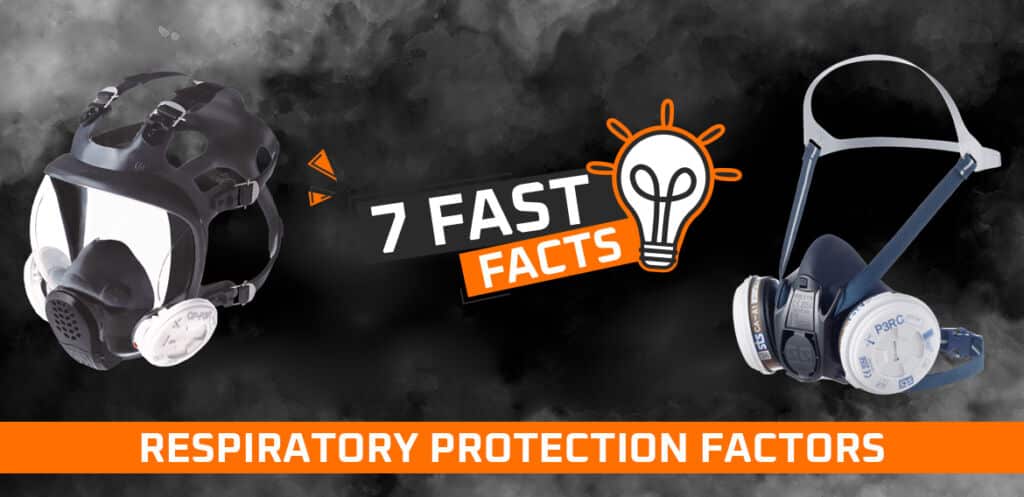The secret to dying quietly without being noticed is to do it slowly in a hospital from a disease that was triggered many years ago by exposure to hazardous substances in your workplace. This way it’s sure to go unnoticed by all but your closest family and friends. Then you can join the ranks of the 600 – 900 New Zealanders who die this way every year.
Certainly, your workplace, whose poor practices put you in contact with the hazardous substance won’t notice as you will have left many years before. Nor will the politicians who are focused on the higher profile but less frequent accidents at work (only 42 in 2018) and the road toll, 377 in 2018. The public certainly won’t notice because they get their news from a media that likes bold, clear and spectacular deaths such as the recent Christchurch terror attack which claimed the lives of 51 people.
Although all premature deaths are a tragedy, it is quite amazing that as a society we place almost no focus on addressing one of the leading causes of premature deaths, that of occupational disease from exposure to hazardous substances.
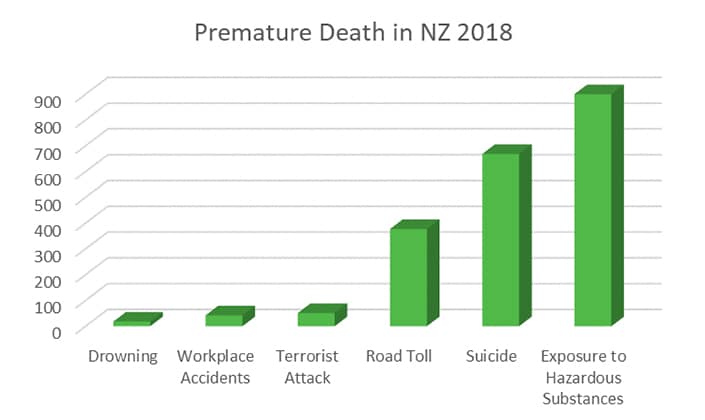
While the relatively new Health and Safety at Work Act 2015 and the new Hazardous Substance Regulations 2017 are designed to address these risks, without some higher profile deaths that get the public’s attention it is unlikely that much will change. Why is this you may ask? The answer seems clear, in the graph above all but the largest category of premature death happens instantly. As humans we’re hardwired to respond to immediate danger but not so good at dealing with anything that happens slowly, just ask those campaigning to address heart disease, climate change, or the obesity epidemic.
Step one is making people aware of the problem, which is what I’m trying to do today. In future posts I’ll talk about some of the solutions but for now if you remember one thing, remember you’re 10 times more likely to die from occupation disease than you are from a workplace accident.
Sources:
- Drowning statistics | www.watersafety.org.nz
- Road Toll | www.transport.govt.nz
- Terrorist Fatalities | www.nzherald.co.nz
- Suicide Statistics | www.mentalhealth.org.nz
- Hazardous Substance Deaths | www.worksafe.govt.nz
For more information about your requirements and or to talk through how we can help, contact us on 0800 323223, enquiries@dilnz.co.nz or via the website.
